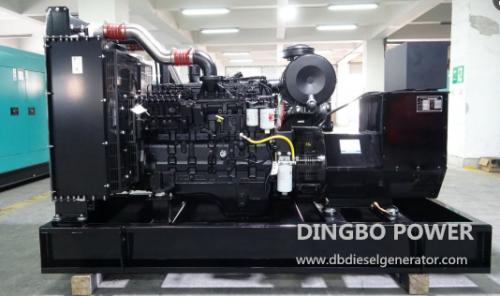
Coolant plays an important role in the smooth operation of diesel engine. It’s a part of the cooling system and keep internal temperatures of parts down. In freezing weather conditions, the coolant won't freeze and can circulate effectively through the system to cool the engine and prevent damage. So what is the best coolant for diesel generator?
Why do we use coolant in a diesel generator?
In short, coolant transfers heat while providing antifreeze protection to an engine to keep your car on the road. Internal combustion engines create heat from well, combusting fuel. This creates the energy that propels your generator, but there is a portion of this energy that isn’t used and is converted into heat. Now some of this heat is dealt with via the exhaust system but some remains within your engine block.
Coolant itself is superior to water in terms of operating conditions. In freezing weather conditions, the coolant won't freeze and can circulate effectively through the system to cool the engine and prevent damage. In hot weather and when the equipment is being operated at peak load for long periods, the coolant will resist boiling and continue to circulate as a liquid, effectively cooling the engine.
Coolant matched to the application is critical to prevent corrosion - poor or out of specification coolant or coolant without the SCA added will corrode components - often very fast and lead to radiator leaks and failures of the cooling system.
Which coolant is used in a diesel generator?
Water is the most common coolant used in diesel engines. However, water alone presents the possibility of corrosion, mineral deposits, and freezing. Where engines could be subjected to temperatures near or below freezing, an antifreeze such as ethylene glycol or propylene glycol must be added. The most common solution is a 50/50 mix of antifreeze and water, which is good for temperatures down to -40°F.
Commercial antifreeze includes corrosion inhibitor additives. Adding antifreeze does negatively affect heat transfer. Diesel engines used for emergency service
at nuclear facilities are not generally subjected to temperatures where freezing is a possibility. Under these conditions, use of antifreeze is not required. However, the corrosion inhibitor additives can be mixed with demineralized water to provide corrosion protection.
What kind of coolant do you use in a diesel generator?
Always consult your generator's user manual to determine the proper coolant and maintenance required by your generator model. Generally, Ethylene Glycol has desirable thermal properties, including a high boiling point, low freezing point, stability over a wide range of temperatures, and high specific heat and thermal conductivity. Ethylene glycol is listed as a toxic chemical requiring care in handling and disposal.
Water can be used to dilute your coolant depending on your climate. Use distilled water for the best results. Hard water causes scale deposits, which reduces cooling efficiency and raises internal temperatures, possibly leading to engine damage. Use an anti-corrosive to prevent rot in summer and an anti-freeze to prevent freezing in winter. Dilute the anti-freeze based on a theoretical temperature that is 9-18 °F (5-10 ℃) below the lowest temperature expected in the area. A ratio of 40-60% is the most common range.
How to check coolant level in a diesel generator?
Before starting a diesel generator, it is essential to check the coolant level to prevent the unit from over-temperature. When the coolant level is low, you need to replenish the coolant to the radiator.To check the coolant, remove the cap from the top of the radiator only when the generator is completely cold. Visually inspect that the coolant in the radiator is visible above the radiator elements.
Commonly, technicians use one of the following to test the coolant's protection level:
Litmus paper: Test strips that measure the pH level of the coolant to see if the water/antifreeze mixture is still ideal.
Refractometers: A handheld device that measures the concentration of antifreeze in the coolant.
Before adding coolant, make sure that the radiator is cooled down.After opening the lid at the top of the radiator, add coolant slowly to let additional air from the generator set breathe out. When the filling is complete, tightly close the radiator cap. It’s essential to regularly check and maintain the coolant level in your diesel generator set. Don’t hesitate to reach out for any further information or assistance regarding to diesel generator coolant.
Post Your Ad Here
Comments